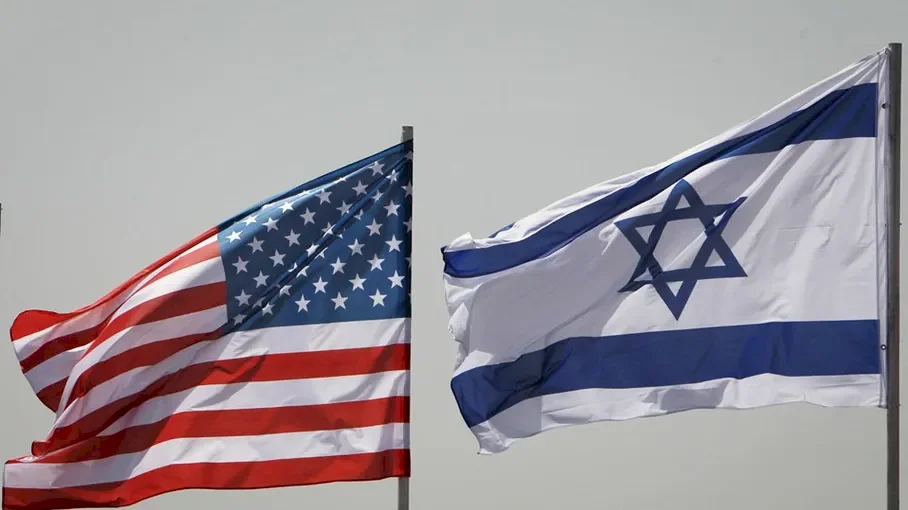Two experts say Washington will regret Israel’s actions in the Middle East
Al-Khamisa News Network - Gaza

Two Chatham House experts said that Middle Eastern countries increasingly view “Israel” as a new common threat and that Washington’s steadfast support for the country undermines its standing in the region and has already prompted some Arab states to reassess their alliances and security strategies.
The experts, Ghaleb Dalay, a senior consulting fellow at Chatham House and coordinator of the Contemporary Turkey programme at the University of Oxford, and Sanam Vakil, director of the Middle East and North Africa Programme at the same institution, write in Foreign Affairs that Israel’s ongoing war on Gaza and its expansionist military doctrine have fundamentally altered the geopolitical landscape of the Middle East.
They note that Israel, which some Arab states once saw as a potential security partner against Iran, is increasingly regarded as a destabilizing force — and instead of isolating Iran and its proxies, as Israeli and American policy aims, Israel’s behavior has alienated major Arab states, including Gulf countries that had previously been open to normalization under the Abraham Accords.
The two observed that the new peace plan announced by U.S. President Donald Trump and Israeli Prime Minister Benjamin Netanyahu lacks regional support and is considered unworkable so long as Israel continues its aggressive actions and refuses to meet Palestinian demands.
They conclude that normalization with Israel has become political poison across the Arab world: recent opinion polls show a sharp drop in public support for ties with Israel. They cite, for example, Moroccan support for relations with Israel falling from 31% in 2022 to just 13% after the Gaza war began in 2023.
Egypt, Israel’s long-standing peace partner, has significantly downgraded its relationship with Israel following the military campaign in Gaza. Egyptian President Abdel Fattah el-Sisi even went so far as to describe Israel as an “enemy,” a departure from decades of diplomatic caution. Cairo has also increased cooperation with Turkey, previously viewed as an adversary, signaling a broader regional realignment, the experts say.
Regarding the Gulf states, the authors warn that they too are reassessing ties with Israel. Saudi Arabia, which had previously faced U.S. pressure to normalize relations, has moved away from such steps not only for domestic reasons but also because of Israel’s aggressive actions in recent years. The United Arab Emirates, once the Gulf’s closest ally to Israel, has faced sharp criticism for maintaining ties with Tel Aviv during the Israeli assault on Gaza. Qatar, Oman and Kuwait have distanced themselves from Israel.
Qatar has become the main Arab critic of Israeli policy in Gaza, while Kuwait and Oman remain isolated and cautious about becoming entangled with Israel, according to Dalay and Vakil.
Turkey’s stance has also hardened: despite improved relations with Israel in recent years, the Gaza war, Israeli incursions into Syria and tensions over refugee flows have pushed Ankara to suspend trade with Tel Aviv and close its airspace to its aircraft. The experts say Turkey now views Israel as a direct security threat, particularly because of its undermining of stabilization efforts in Syria.
Dalay and Vakil warn that these developments are driving regional militarization and a diversification of security alliances. Countries such as Saudi Arabia, the UAE and Turkey are working to build domestic defense industries and are turning to partners such as China, South Korea, Pakistan and Europe for arms cooperation and militarization, indicating a move away from reliance on U.S. military support.
They also highlight the stalling of initiatives such as the Abraham Accords, the India–Middle East–Europe Economic Corridor and the Negev Summit — all of which aimed to integrate Israel into the regional system — but say Israel’s aggressive posture has made rapprochement with it a burden for Arab governments.
The authors argue that if Washington continues to ignore the regional backlash against Israeli aggression and the centrality of the Palestinian issue, it risks losing influence and credibility.
Accordingly, Dalay and Vakil say the United States should reassess its stance by supporting de‑escalation, economic integration and a just solution to the Palestinian question. Without such a shift, Washington may find itself complicit in dismantling the very strategic architecture it once sought to build in the Middle East, they conclude.






